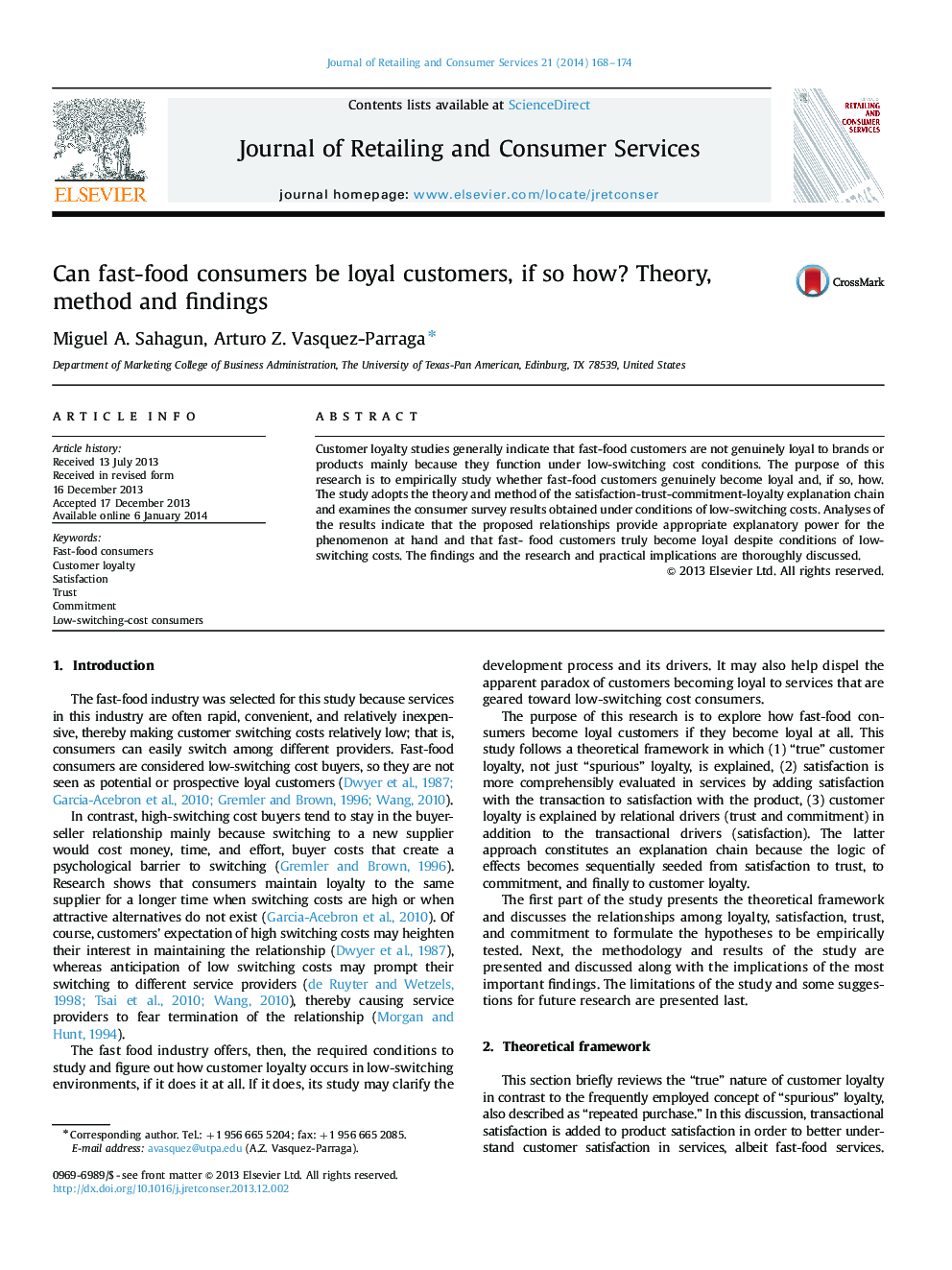| Article ID | Journal | Published Year | Pages | File Type |
|---|---|---|---|---|
| 1028785 | Journal of Retailing and Consumer Services | 2014 | 7 Pages |
•Fast-food consumers were shown to be not genuinely loyal to brands or products.•Fast-food consumers are belied to function under low-switching cost conditions.•This empirical study shows that fast-food customers genuinely become loyal to brands.•This study adopts the satisfaction-trust-commitment-loyalty explanation chain.•Consumer survey results corroborate the explanation chain for fast-food customers.•Fast- food customers become loyal despite conditions of low-switching costs.•Research findings and practical implications are thoroughly discussed.
Customer loyalty studies generally indicate that fast-food customers are not genuinely loyal to brands or products mainly because they function under low-switching cost conditions. The purpose of this research is to empirically study whether fast-food customers genuinely become loyal and, if so, how. The study adopts the theory and method of the satisfaction-trust-commitment-loyalty explanation chain and examines the consumer survey results obtained under conditions of low-switching costs. Analyses of the results indicate that the proposed relationships provide appropriate explanatory power for the phenomenon at hand and that fast- food customers truly become loyal despite conditions of low-switching costs. The findings and the research and practical implications are thoroughly discussed.
